SCALA Uganda
Project Overview
Uganda experiences the effects of climate change in the form of increased temperatures, frequent disease outbreaks and insect infestations, disrupted rainfall patterns, and frequent floods and droughts. While Uganda has progressively undergone social and economic growth and transformation, consequently reducing its poverty rate by 23 percent over the last two decades, sustained gains will require continued investments in agriculture, and the inclusive participation in the economic growth of women as well the population reported poor in 2019. With 81 percent of the population engaged in rain-fed subsistence farming for food and cash income, the country’s reliance on rain-fed agriculture remains a risk to economic growth, income of farmers, as well as export earnings. Agriculture contributes up to 40 percent of Uganda’s total GDP and over 90 percent of the country’s foreign exchange earnings. The agriculture sector contributes to 27 percent of emissions, followed by the land-use and forestry sector with approximately 60 percent of emissions.
Project Details
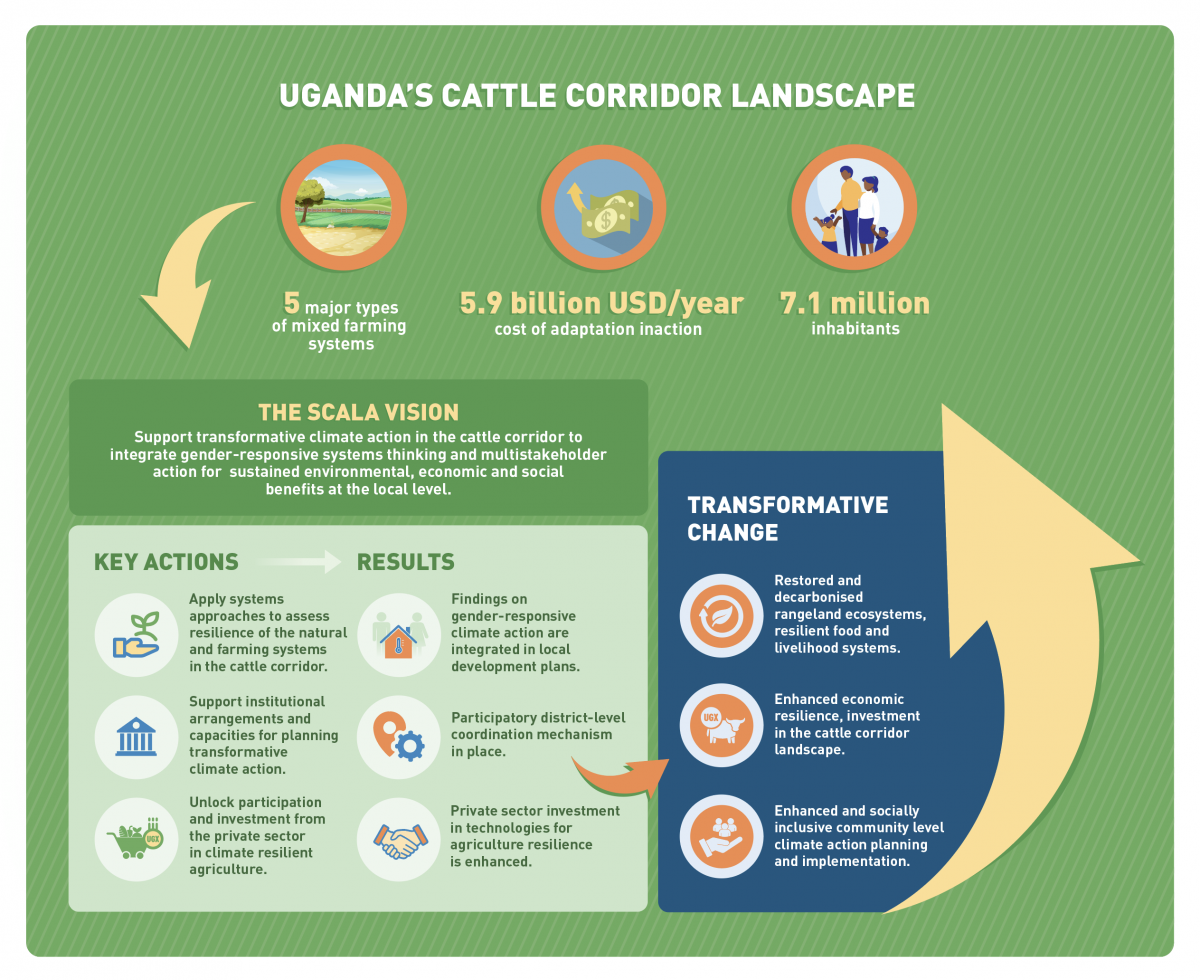
News
Uganda identifies barriers, solutions, and investment opportunities for gender-responsive agri-food value chains in the cattle corridor
26 October 2021 - The SCALA team sat down with Mr. John Chrysostom Birantana, Senior Principal Policy Analyst at the Ministry of Agriculture Animal Industry and Fisheries to understand the challenges related to scaling up both climate change adaptation and mitigation in the cattle corridor landscape, and how the country plans to overcome those barriers to achieve its ambitious climate agenda.

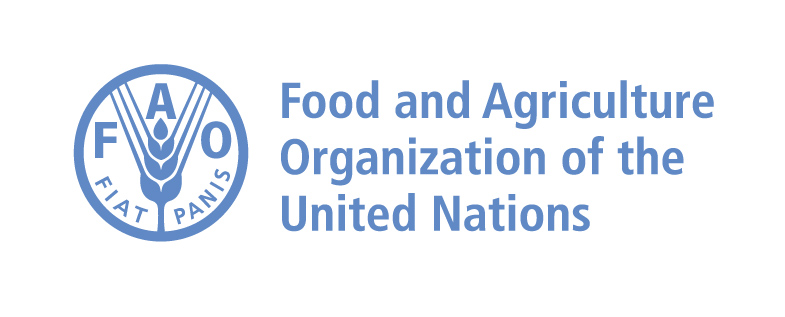
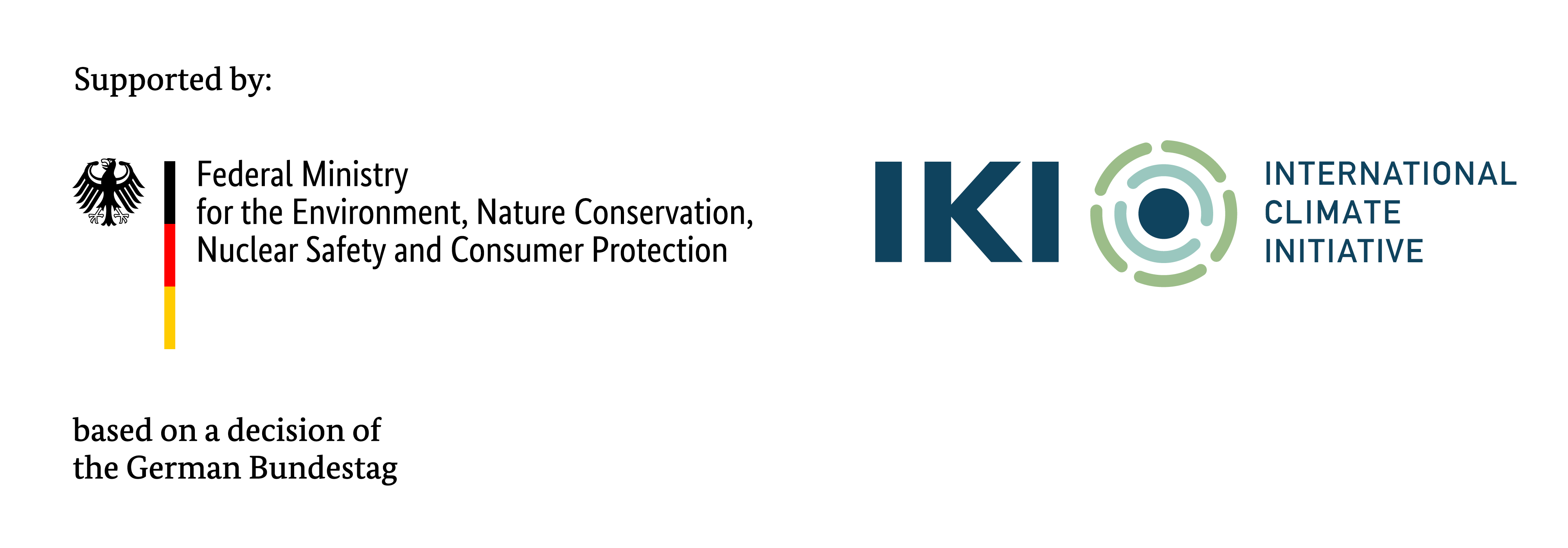
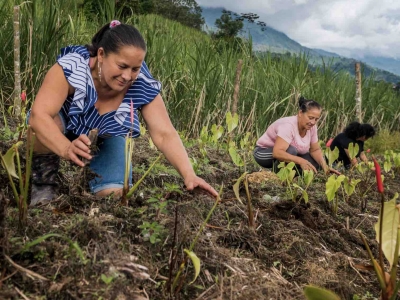 Scaling Up Climate Ambition in Uganda: Collaboration for Adaptation
Scaling Up Climate Ambition in Uganda: Collaboration for Adaptation 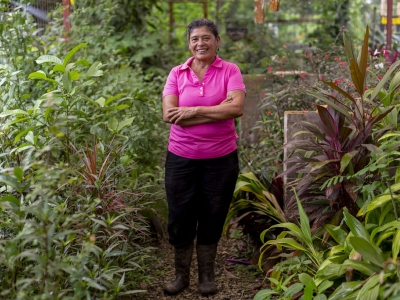 Celebrating women’s leadership in climate action
Celebrating women’s leadership in climate action  Implementing SHARP+ to foster transformative climate actions in Uganda’s Cattle Corridor
Implementing SHARP+ to foster transformative climate actions in Uganda’s Cattle Corridor  Uganda’s approach to reporting climate actions from all sectors
Uganda’s approach to reporting climate actions from all sectors 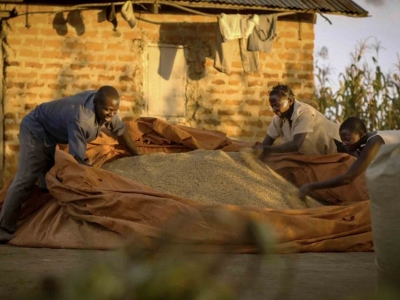 The climate-nutrition-agrifood system nexus in Uganda
The climate-nutrition-agrifood system nexus in Uganda